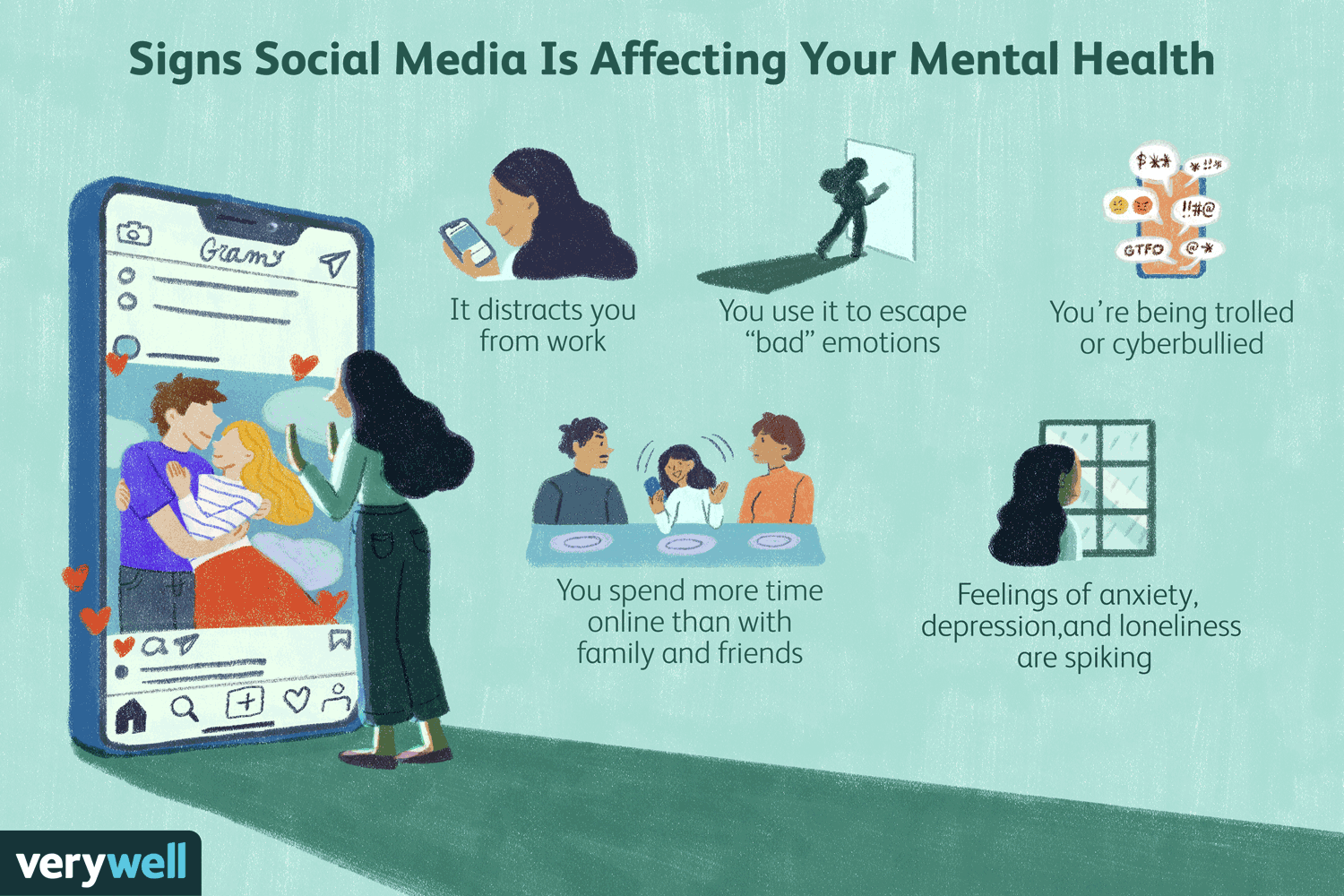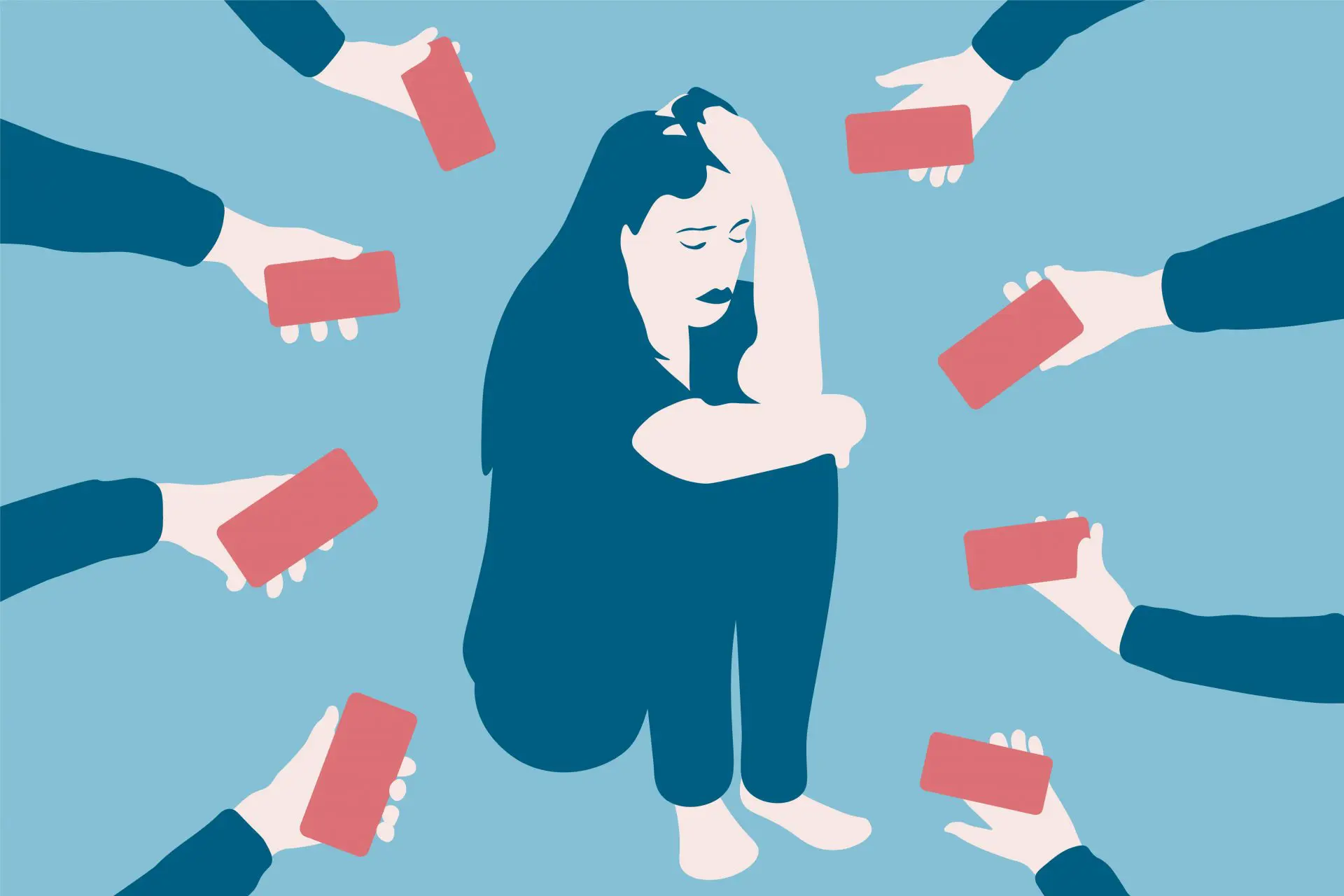By Vassilki Tsekoura,
In recent years, social media has become an integral part of our daily lives, connecting us to friends, family, and the whole world. While it offers numerous benefits, such as instant communication and access to information whenever one desires, there is also a growing concern about its serious negative impact on mental health.
- Comparison and Self-Esteem
One of the most significant impacts of social media is the constant comparison it fosters. People often share carefully curated highlight reels of their lives, leading others to compare themselves and feel inadequate. The constant consumption of these nicely presented fake realities influencers seem to push, causes individuals living a normal calm life to view their own success as something lower. This can lead to a decline in self-esteem and a sense of social isolation, especially when individuals perceive that their lives do not measure up to the seemingly perfect lives of others. Although it could be easily assumed that social media often than not portrays a reality that is far from the truth, it is understandable that some people are affected negatively by this as they desire to live the same luxurious life and have no worries in life.
- Cyberbullying and Online Harassment
Moreover, the anonymity and distance that social media platforms provide people with has already given rise to cyberbullying and online harassment. Platforms such as TikTok, have given voice to people who enjoy harassing other creators, influencers and non. This constant exposure to negative comments or hurtful messages can profoundly affect a person’s mental well-being, which tends to lead to a growth in the numbers of people who suffer with anxiety and depression which in some cases leads to suicidal thoughts.

- Addiction and Time Management
Spending excessive amounts of time on social media can become addictive with no awareness of the individual. These platforms contain short content videos, ranging from 30-second to 3-minute long ones which lead to an excessive amount of scrolling through phones with no awareness of time passing. This could potentially lead to neglect of real-life responsibilities, relationships, and activities. This loss of balance in our lives can contribute to feelings of anxiety and low self-worth as this extensive consumption of social media can be viewed as wasting our lives away doing something that is not beneficial to us.
- Body Image Concerns
Last but not least, the prevalence of idealized body images on social media can lead to body dissatisfaction and the development of eating disorders, especially among impressionable young users. Moreover, it appears that there has been a growth in the number of individuals that appear to glorify and promote eating disorders through the content they create, labelling it as “healthy dieting” when all it truly is, is a restrictive unhealthy diet. This type of content already feeds into the unhealthy mindsets of eating disorders that only make it worse for said individuals.
To conclude, although social media has brought numerous advantages which include connecting people all around the globe as well as advocating for broader education through the ability to share information with the world, their negative impact cannot be disregarded. From enhancing addiction and reducing real-life interactions to almost nothing to promoting cyberbullying and spreading misleading information, social media has shown that as good as it may seem at first there is still a bad side to them. Moreover, its influence on mental health poses serious challenges for individuals and society as a whole. As we move forward, it’s crucial to address these issues responsibly, finding a balance between the advantages and disadvantages of social media to ensure a healthier lifestyle with a focus on our wellbeing.




